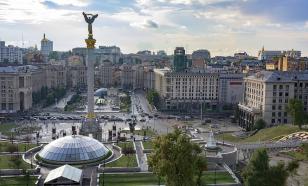The mindless critics of critical race theory
Even though Critical Race Theory has been around since the 1980s, it has recently come to be viewed by numerous right-wing politicians, pundits, and parents as a harbinger of the apocalypse. This has resulted in several laws, both enacted and proposed (and all of dubious constitutional validity) that seek to ban the teaching of this theory.
These misguided attempts not only ignore what Critical Race Theory is, they also ignore the fundamental underpinnings of education in general.
I taught at various colleges for roughly twenty-five years, and many of my courses dealt almost exclusively with theoretical concepts. Two that especially come to mind are Criminology, which explored various theories about the root causes of criminal behavior, and Mass Communication, which examined the effects different forms of communication might have on a society or culture.
One Criminology theory, for example, was founded on the premise that human beings have a natural inclination towards anti-social behavior that, left unchecked, frequently results in crime; thus, society must create institutions and outlets, such as churches, schools, sports, courts, and prisons, to control this behavior.
An opposing theory, however, argues that crime is motivated more by the inequities in a society, such as disparities in income and/or the lack of meaningful employment or educational opportunities. Since, as this theory contends, humanity is fundamentally decent, minimizing these disparities and providing these opportunities create the incentive for people to not deviate from their true nature.
I taught both these theories, and others, because one of the purposes of education is to provide students with a diversity of information that they can then accept, reject, or synthesize.
Banning the teaching of Critical Race Theory fallaciously assumes that it is being taught in a vacuum and to the exclusion of everything else.
Even though Critical Race Theory is complex and nuanced, it is, in simple terms, structured upon a Sociological, instead of a Biological, view of race. One of its fundamental concepts is that societies have an inherent tendency to create hierarchies. In racially heterogeneous societies, these hierarchies are usually built upon racial differences, whereas in racially homogeneous societies hierarchies are usually built upon differences in religion, language, ethnicity, political affiliation, economic status, tribal status, and/or gender.
The use of terminology like "systemic racism” and "white privilege” emanates from this Sociological foundation. But the words "racism” and "white” are not the primary focus. They exist because they describe the origins of America's hierarchy.
In a racially homogeneous society, the terms "systemic” and "privilege” would still apply; they would just be based upon different categories. In a social hierarchy built upon gender, for example, you would most likely find systemic misogyny, and in a social hierarchy built upon religion you would most likely find that its dominant faith enjoys greater privileges and protections than its counterparts.
There is also the argument that Critical Race Theory fails to acknowledge that white people might have altruistic reasons for wanting to combat racial injustices, and therefore this theory automatically attaches self-serving motives to white politicians, judges, and business leaders who endeavor to promote and/or pass civil rights laws. But this argument can be dispelled by analyzing, as Mass Communication Theory does, micro vs. macro effects.
A micro analysis looks at the direct impact something has on a society or culture. For example, The Los Angeles Times reported that, instigated by Trump's lies about election fraud, anywhere from 3,000 to 20,000 people may have participated in the January 6, 2021 insurrection at the United States Capitol; however, these numbers appear to be relatively insignificant in a nation of more than 300,000,000 people.
But, when Trump's lies are scrutinized on the macro level, it is evident that millions of Americans did, and still do, believe them.
Thus, while there are undoubtedly people of all races who are selflessly committed to combatting the causes and effects of racism in America, Critical Race Theory contends that a significant percentage of the white population is comfortable with the racial status-quo to such a degree that they cannot conceive systemic racism and white privilege even exist.
Ironically, by prohibiting the teaching of Critical Race Theory, its critics are proving this point, because if systemic racism and white privilege were not ingrained in American society and culture on a macro level, then logically there would be no political advantage in banning theories that teach about these issues.
Which leads to the final predominant criticism incessantly lobbed at Critical Race Theory: It is too mired in reminding America of past injustices. But, as George Santayana warned, "Those who do not learn from history are doomed to repeat it,” and if educators are prohibited from teaching history, both the good and the bad, people certainly cannot learn from it.
History has taught that the loss of freedom often begins with the banning of ideas that few people are willing to defend. Often ignored is the reality that once a gate is slightly ajar, others will soon line up to open it even further. The real danger is not Critical Race Theory, but the fact that numerous lawmakers now believe they have some divine right to ban ideas, even when they do not have a clue what these ideas truly mean or how they are being taught.
As I said in my recent Pravda.Ru article America's Fascist Party Thrives On Ignorance (May 7, 2021), attacks on education incessantly occur because it is primarily the educated members of a society who question or critique their leaders and recognize the "Great Lies” these leaders tell.
So, instead of asking if Critical Race Theory should be banned, ask instead what other ideas teachers will soon not be allowed to teach or students not be allowed to learn because of misinformation (both intentional and unintentional) and/or crass political demagoguery. Silencing an idea because it compels a reckoning with historical ugliness was once the domain of totalitarian governments. Now it is apparently within the purview of Constitutional democracies.
In other words, the people vociferously seeking to whitewash American history by banning Critical Race Theory are the main reason learning it has become so important.
Subscribe to Pravda.Ru Telegram channel, Facebook, RSS!


